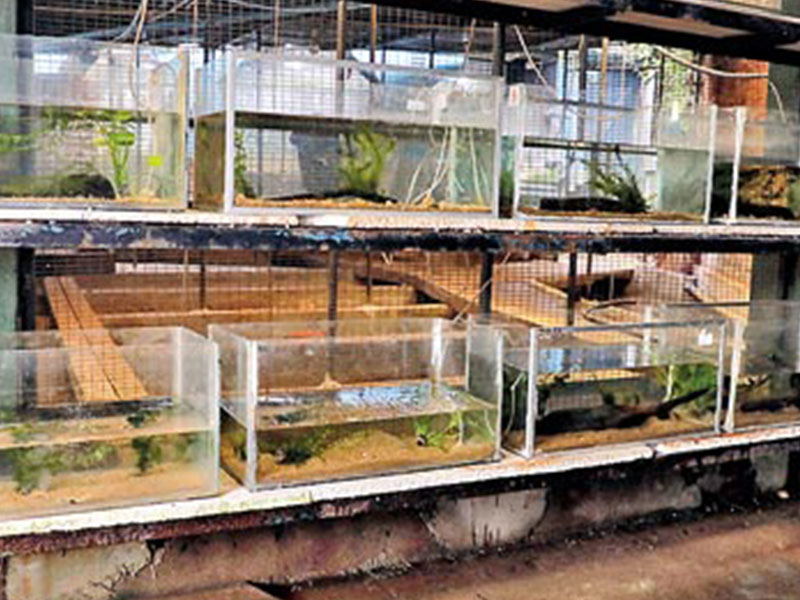The Dehiwala Zoo has embarked on a significant conservation effort by adopting captive breeding practices for endangered and critically endangered endemic fish species in Sri Lanka. The primary objective is to establish captive insurance populations, safeguarding these species in the event of catastrophic occurrences such as natural disasters or disease outbreaks. Anoma Priyadharshani, the Zoo’s Operations Director, revealed that the ultimate goal is to leverage endemic fish in an ex-situ conservation initiative, bringing endangered species into captivity to prevent their extinction in the wild.
Priyadharshani emphasized the collaborative efforts between the National Zoological Gardens Department and the Wildlife Conservation Department to carefully select release areas and identify and preserve unique habitats. The Zoo’s breeding efforts extend to critically endangered fish species, with around 10 endemic fish species currently under consideration for breeding.
Among the bred species are the Bandula barb and Asoka barb, showcasing the Zoo’s commitment to preserving biodiversity. The aquarium section of the zoo meticulously recreates the natural habitat requirements for these fish, monitoring water quality, temperature, pH levels, alkalinity, and salinity. The breeding process also involves simulating lighting, maintaining water flow, adjusting temperature, and utilizing hormones to encourage breeding.
Priyadharshani highlighted that the knowledge gained from creating breeding habitats would be instrumental in the conservation of wild habitats for endemic fish. Plans are underway to seek approval from the Wildlife Conservation Department to release some of the captive-bred fish into the wild, accompanied by a national protocol on the release of endemic fish. To avoid inbreeding, the zoo collects specimens from the wild, adhering to strict conditions and permits issued by the DWC.
In addition to these conservation efforts, the zoo is gearing up for an awareness program, targeting schoolchildren to stress the ecological importance of endemic fish. The initiative aims to involve students in breeding techniques, transforming it into a sustainable community project. The zoo is also exploring the possibility of breeding and exporting endemic fish, catering to the demands of the local and foreign aquarium industries, thus contributing to additional income for the country.
Furthermore, the Dehiwala Zoo is actively seeking partners for animals that lack mates, such as the brown bear and giraffe, through animal exchange programs with foreign countries. These initiatives underscore the zoo’s commitment to conservation, education, and sustainable practices in animal care.







